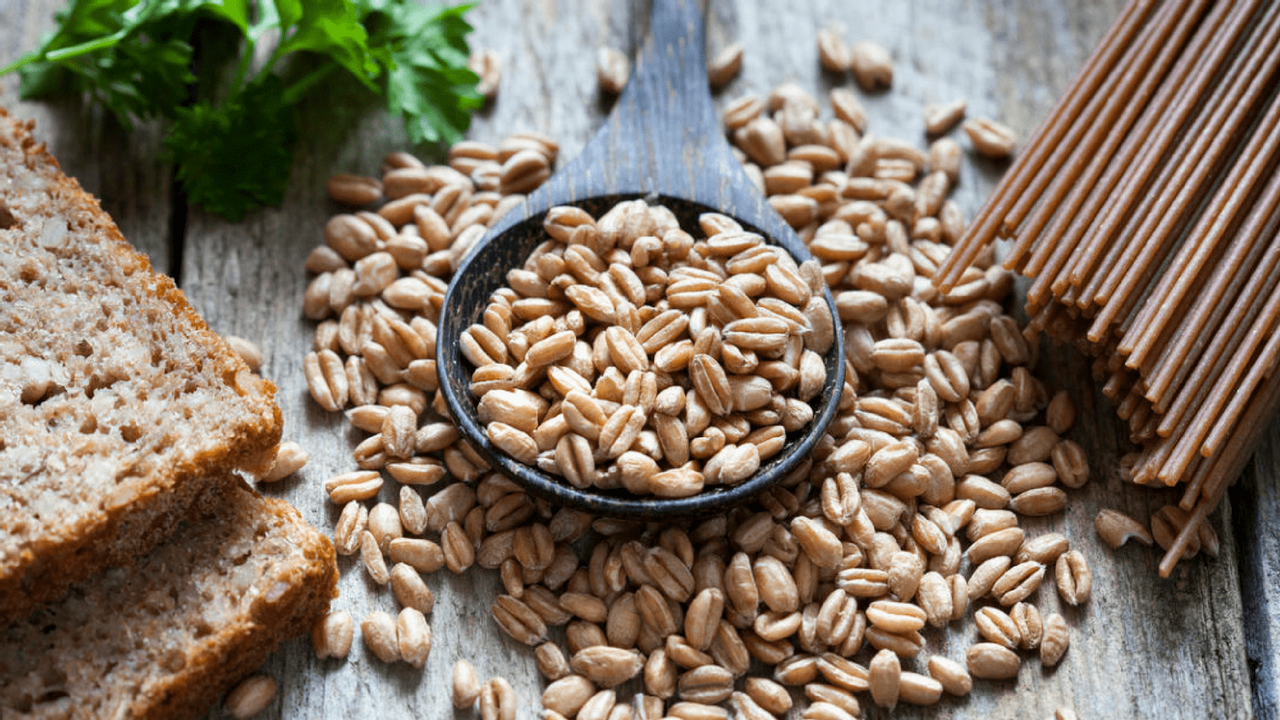Carbohydrates - What Are the Best Choices?
Apr 15, 2021
One of the areas of nutrition that I seem to be asked about almost on a daily basis, is carbohydrates. “Should I eat them”? “Should I cut them out”? “Should I increase them”? “what are good ones”? Etc etc. They are a part of our diet that have been hammered in the press over the years and that has lead to mass misunderstanding.
So, carbohydrates ARE an important part of our diet, and being without them can create severe problems in the long term. The real big issue in all of this is the TYPE of carbohydrates you consume, and the AMOUNT of them that you consume. This is because of the way that they influence our body in terms of the biochemical effects that they have. For so long we have always been taught to think in terms of calories, but if you recall from my piece on why we shouldn't count calories, the calorie model really doesn't tell us a lot. The items that are providing the calories in the first place can influence so many aspects of our biology. Hormones, signalling pathways, fat storage, fat mobilisation. The list is endless. We need to think in terms of biology now, not numbers in and out, and getting educated in this area is what will save your health in the long run.
SO lets break this down into the two distinct areas then. The first part of the carbohydrate puzzle is the TYPE of carbohydrates you consume. This really doesn't have to be complicated and I have a very simple rule here - swap the white for the brown. So if you eat bread, ditch the white for a good multigrain. You like pasta? Then bin the white stuff and get a good wholewheat pasta. Rice - go for brown over white. You get the picture. Why does this matter? Well, the brown versions have a much higher fibre content. This means that they take far longer to digest and as such means that they liberate their sugars far more slowly than their simple white counterparts. And this is where we illustrate how the items that supply calories actually influence our biochemistry in a way far beyond numerical value….
The rate and the extent to which something releases its sugar really really matters, as this determines how high and how fast blood sugar will rise. When blood sugar rises, we secrete the hormone insulin, which binds to our cells, telling them that sugar is available for them to take up and convert into ATP - the cell’s energy currency. All great. The problem is is that cells have a limit. A cut off point. They can get full. Too much glucose in a cell in one sitting can lead to oxidation within the cell and severe damage so the amount they take up is very tightly regulated. In normal circumstances, gentle rises in blood sugar don't present a major problem. There is a small insulin spike, the glucose transporters open, glucose goes in to the cells, blood sugar returns back down to a normal level, and all is well with the world.
However, if we consume simple sugars that have very little fibre in them - ie white bread or have a simple structure ie simple sugar from chocolate, they release their sugar content rapidly. This means that we get a sharp and high rise in blood sugar. The body responds as it always does by releasing insulin and telling cells there is glucose available for use, the cells open their transporters, and in it goes. However, they have a cut off point remember and they get full. When this happens, if blood sugar is still high, it still has to be dealt with and the body is very effective at doing this - it is hardwired into our DNA. We are able to store it for a rainy day!! To do that we have to turn it into something else. The left over sugar is sent to the liver where it is converted into something called triacyl glycerol otherwise known as triglycerides. This is basically a fatty substance that can be carried to our fat cells for storage so that we can access it later - if we allow our body’s the chance that is. This fatty substance is carried to the fat cells via our circulation, and levels of triglycerides in the blood can determine to what extent this is occurring. Here we have a double whammy problem. We have basically started to add stock to our fat cells, but as these triglycerides are transported there through the circulatory system, they can cause damage to the lining of the blood vessel walls and trigger a series of events that ends up in the vessel damage we know as heart disease. The long story short - raised triglycerides increase heart disease risk. Also in time, if we continue to push blood sugar up and stimulate insulin release, our cells become less receptive to insulin signalling and we eventually become insulin resistant. This can progress to type 2 diabetes if not managed.
Ok….lets take a breath. Right, you should be able to backtrack through this information and see that preventing blood sugar getting too high to quickly for too long can help prevent us gaining weight and protect against heart disease. Thats pretty huge. Something as simple as changing the type of carbohydrates that you eat can have some serious long term health impacts. The higher the fibre, the slower they release their glucose and blood sugar rises gently instead of being carpet bombed. Then of course you have all the benefits to the digestive system that fibre brings.
Right, now the second part, and this is a part that is a bit trickier to actually be prescriptive about, so I will just make general recommendations here, and I recognise that there will be individual differences, ie if someone is an athlete, a diabetic etc. It is impossible for me to give absolutes to all people, so this is just a baseline recommendation…
As we saw, managing blood sugar is vital. I said that the type of carbs we eat are important ie wholegrain over white refined. Thats that. The second part of the picture is the amount that we eat. For generations we have had the message hammered home to us that saturated fat was terrible for our health and will put us in an early grave and we should avoid it at all costs. We were instead advised to build our diets around starchy carbohydrates. This messaging caused a drastic skewing in the macronutrient composition of the Western diet. The macronutrients are the big three - proteins, fats, carbohydrates. We ended up eating more simple carbohydrates than ever before. If we were all eating loads of sweet potato, or brown rice etc like the Okinawans then it wouldn't be a big problem. Instead, we ate processed refined goo out of a cereal box, white bread, white pasta etc etc. Refined carbs in high levels. lets look at this scenario for example and tell me if this sounds familiar….
Someone may have say a bowl of cereal and a slice of toast for breakfast. Then a sandwich and packet of crisps for lunch. Dinner may be some pasta, or something with a sauce that we use a couple of slices of bread to mop up the remnants etc. This is very very Normal here in the UK. Now, NONE of these foods are BAD in and of themselves. The issue is pattern of consumption. This much refined carbohydrate is just much too much and sends blood sugar through the roof, and we know what that leads to.
So as well as making better carbohydrate choices, we need to get the amount down. The simplest way I have found for individuals is to cut their portion sizes in half. Just half it. If you have 100g of pasta usually, have 50. If you have 4 tablespoons of rice, have 2. Thats the easiest way for most people to get them in a good range. Then, make up the difference on your plate with non starchy vegetables and good quality proteins. Make sure that every meal contains a protein source as this will further reduce digestion time, meaning blood sugar will be drip fed even more gradually.
SO thats it. Its that simple really. Dont avoid carbohydrates completely as the results in the long term may be problematic. Just understand which ones are good choices and why, and dont eat vast amounts of them, instead building your diet around non starchy vegetables, proteins and healthy fats.
Some of my favourite carbohydrate sources:
Brown Rice
Bulgur Wheat
Granary Bread
Pearl Barley
Wholewheat pasta
Quinoa
Sweet Potatoes (especially purple ones)




